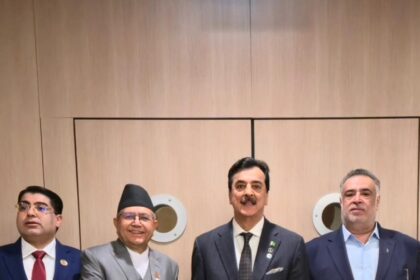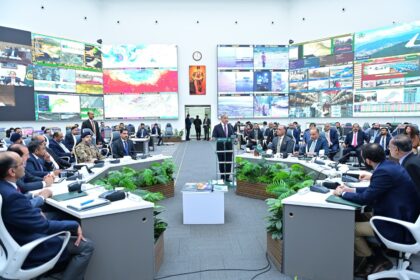The Department of Psychology at the International Islamic University, Islamabad convened a panel discussion during Mental Health Week to examine the psychological consequences of catastrophes and the role of mental health professionals in recovery and resilience.
The forum was attended by IIUI President Prof. Dr. Ahmed Saad Alahmed, who commended the department’s initiative and presented tokens of appreciation to contributors. The session was moderated by Dr. Amna Hassan.
Panel members included distinguished academicians and practitioners such as Dr. Manzoor Khan Afridi, Dean Faculty of Social Sciences; Dr. Nazia Iqbal, Incharge Department of Psychology (Female Campus); Dr. Mazhar Iqbal Bhatti, Incharge Department of Psychology (Male Campus); Dr. Ruksana Tariq, Student Advisor (Female Campus); Dr. Kehkashan Arouj; Dr. Mamoona Ismail Loona, Incharge Female Counselling Centre; Dr. Rabia Mushtaq; Dr. Musarrat Jabeen Khan; and Dr. Faryal Umbreen, Incharge Dawah Centre.
Speakers explored the multifaceted psychological challenges that arise during natural disasters, armed conflicts, pandemics and forced migration, emphasising how loss, separation anxiety and identity disruption affect individuals and families. They stressed that survivors, refugees and internally displaced persons often carry trauma long after physical displacement, underscoring the need for sustained mental health support.
Discussion turned to the effects of crises on family systems, where parental stress, strained couple relationships and financial uncertainty can deepen emotional strain. Panelists advocated for family-centred interventions, trauma-informed counselling and community-based rehabilitation programmes designed to restore stability and hope for affected households.
Contributors incorporated an Islamic perspective throughout the conversation, noting that principles of mercy, patience (ṣabr) and social solidarity can guide culturally sensitive mental health care. Speakers observed that Islamic teachings encourage emotional balance and mutual care, qualities that support resilience in times of hardship.
Dr. Manzoor Afridi connected the local discussion to global humanitarian action, calling for international cooperation and humanitarian diplomacy to ensure mental health remains central to reconstruction and rehabilitation policies in war-affected and disaster-hit regions.
Dr. Ruksana Tariq highlighted links between climate change, environmental degradation and mental health, urging interdisciplinary collaboration so that psychosocial dimensions of environmental crises are addressed alongside physical recovery efforts.
There was broad consensus that mental health must be integrated into national and international disaster management frameworks. Panelists encouraged emerging psychologists to commit to research, advocacy and practical interventions that promote healing, resilience and peacebuilding, particularly in Pakistan where disaster and displacement challenges continue to affect communities.











